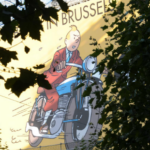Blog Post
The beauty of Christmas music
By Jonathon Van Maren
Behold! Behold! I bring glad tidings–glad tidings of great joy, to you and to all people!
Thus rang the voices of the Hosanna Choir to sing of the birth of the King.
For unto us a Child is born, unto us a Son is given. His name shall be called Jesus, for He shall save His people from their sins.
The choir continued to tell the story of the shepherds in the fields of Ephratah. “Fear not: for behold, I bring you good tidings of great joy, which shall be to all people. For unto you is born this day in the city of David, a Savior, which is Christ the Lord.” Note by note, the voices rose to tell the story of a Babe, born in a manger, sent to save His people. “Glory to God in the highest! and on earth peace, goodwill toward men.”
I’ve usually avoided reviewing musical performances because it is very difficult to use writing to describe music. Music is in many ways indescribable, which is part of its allure. It is literature, it is poetry, but it also defies the written word, and it in some ways defies capture on records—it must be experienced. It is its own language, and when sung by a choir that manages to break through the invisible sound barrier that separates the good from the great, it sounds like the closest we can imagine of Heaven’s language. Words of praise are taken from the page by the singers and offered up, soaring vertically like smoke from an altar. Hosanna Choir’s performance at the Ebenezer Free Reformed Church was precisely that—music that was transcendent. To paraphrase Peter Kreeft, it truly was the music of the spheres, not the music of our peers.
I thought, as I listened in the audience, that the music of Christmas is nearly unmatched—the secular world has nothing to compare to it. There is no equivalent to these songs, nothing as transcendent or beautiful. In comparison, much of secular music rings empty and hollow. It may draw people in, but it does not draw them up. Voices rising and flowing into one another in praise of the Saviour’s birth accomplishes something much different—for the briefest of moments, it seems to capture the faintest of the angelic echoes that once rang over the starry nighttime fields of little town half a world away and two thousand years behind us, where in an event too glorious to be fathomable, the Creator of the Universe came to earth as a child. To borrow a line from G.K. Chesterton, we can no more understand such an event “than we can conceive in our heads the whole enormous and dizzy equilibrium by which, out of suns roaring like infernos and heavens toppling like precipices, He has hanged the world upon nothing.”
It reminded me that even the atheist writer Kurt Vonnegut could not completely escape the feeling that a language so transcendent must beckon towards something outside our realms of understanding, writing in his final collection of essays: “let this be my epitaph: The only proof [I] needed for the existence of God was music.”
The choir ended with a final prayer and benediction. “May the joy of the angels, the gladness of the shepherds, the worship of the Wisemen, and the peace of the Christ Child be yours this Christmas…and the blessing of God the Father, and the Son, and the Holy Spirit, be with you, and remain with you always, Amen.”








